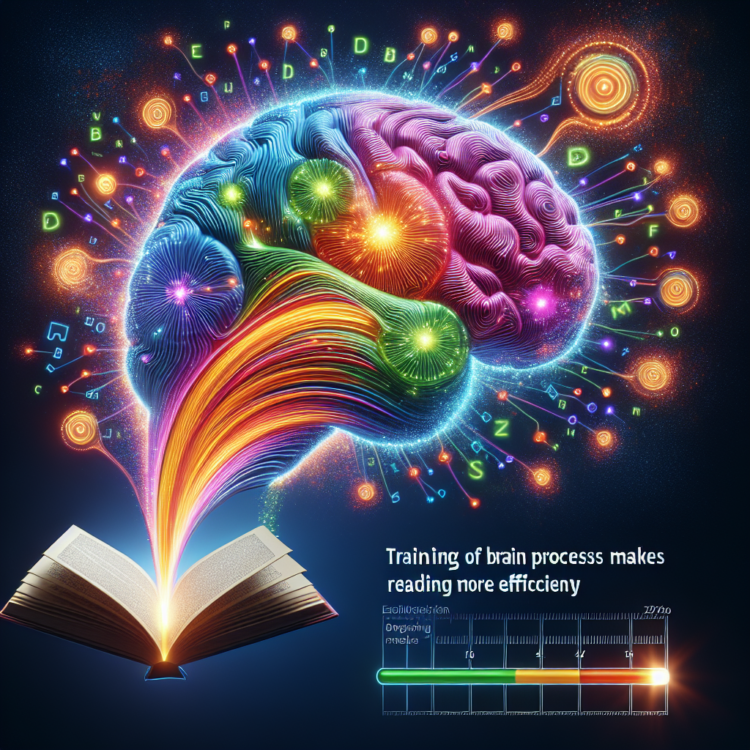A team of researchers from the University of Cologne and the University of Würzburg have found in training studies that the distinction between known and unknown words can be trained and leads to more efficient reading. Recognizing words is necessary to understand the meaning of a text. When we read, we move our eyes very efficiently and quickly from word to word. This reading flow is interrupted when we encounter a word we do not know, a situation common when learning a new language. The words of the new language might have yet to be comprehended in their entirety, and language-specific peculiarities in spelling still need to be internalized. The team of psychologists led by junior professor Dr Benjamin Gagl from the University of Cologne’s Faculty of Human Sciences has now found a method to optimize this process. The current research results were published in npj Science of Learning under the title ‘Investigating lexical categorization in reading based on joint diagnostic and training approaches for language learners’. Starting in May, follow-up studies extending the training programme will be carried out within a project funded by the German Research Foundation (DFG).
A team of researchers from the University of Cologne and the University of Würzburg have found in training studies that the distinction between known and unknown words can be trained and leads to more efficient reading. Recognizing words is necessary to understand the meaning of a text. When we read, we move our eyes very efficiently and quickly from word to word. This reading flow is interrupted when we encounter a word we do not know, a situation common when learning a new language. The words of the new language might have yet to be comprehended in their entirety, and language-specific peculiarities in spelling still need to be internalized. The team of psychologists led by junior professor Dr Benjamin Gagl from the University of Cologne’s Faculty of Human Sciences has now found a method to optimize this process. The current research results were published in npj Science of Learning under the title ‘Investigating lexical categorization in reading based on joint diagnostic and training approaches for language learners’. Starting in May, follow-up studies extending the training programme will be carried out within a project funded by the German Research Foundation (DFG).
“Reading is essential for information processing,” said lead author Benjamin Gagl, who has been studying the cognitive and neural processes of word recognition for years. Two years ago, he and a team of researchers showed that in our understanding of the processes implemented in word recognition, psychological theories do not make sufficiently precise assumptions about the exact functions of one of the most frequently activated brain areas in the left temporal lobe. To close this knowledge gap, Gagl and his colleagues developed a model that uses established behavioural findings from psychology to predict the activation of this reading area in the brain; this model serves as the basis for the training programme described in the new study.
Word filters as a building block for efficient reading
The model assumes that this brain region functions like a filter and separates already-known words from irrelevant or not-yet-known letter combinations; only known words are allowed to ‘pass’ to initiate consequential linguistic processing. However, when we encounter a new word, we cannot continue reading but would need to look up the word in a lexicon or on the Internet to understand its meaning.
The training procedures central to the current study were motivated by the assumptions of the ‘Lexical Categorization Model’. Behavioural studies showed that reading skills improved when participants were trained in this filtering process central to efficient reading. The training procedure included simple tasks in which readers should distinguish words from non-words (e.g. path vs. poth) by pressing a button. After three training days, reading performance substantially improved in three separate studies. The team also used a machine learning-based diagnostic procedure that can increase the efficiency of training as it can detect participants who would likely not benefit from further training. This allows a decision to be made individually for each learner as to whether the lexical categorization training is worth the effort or whether alternative training should be carried out instead.
New ways to compensate for reading problems
As part of a newly acquired project funded by the DFG starting on 1 May, the researchers will further develop the computer models, motivating new training approaches for language learning or for the compensation of other reading disorders. In addition to the field of German as a foreign language, the training approaches can potentially be used in dyslexia treatment. “Neuro-cognitive computer models can be used to implement basic scientific findings to be used in individual diagnostic training programmes in educational and clinical settings. This enables us to help individual learners to optimize their reading skills and thus significantly improve their information processing skills,” said Gagl.
Journal
npj Science of Learning
Method of Research
Observational study
Subject of Research
People
Article Title
Investigating lexical categorization in reading based on joint diagnostic and training approaches for language learners
Article Publication Date
10-Apr-2024




